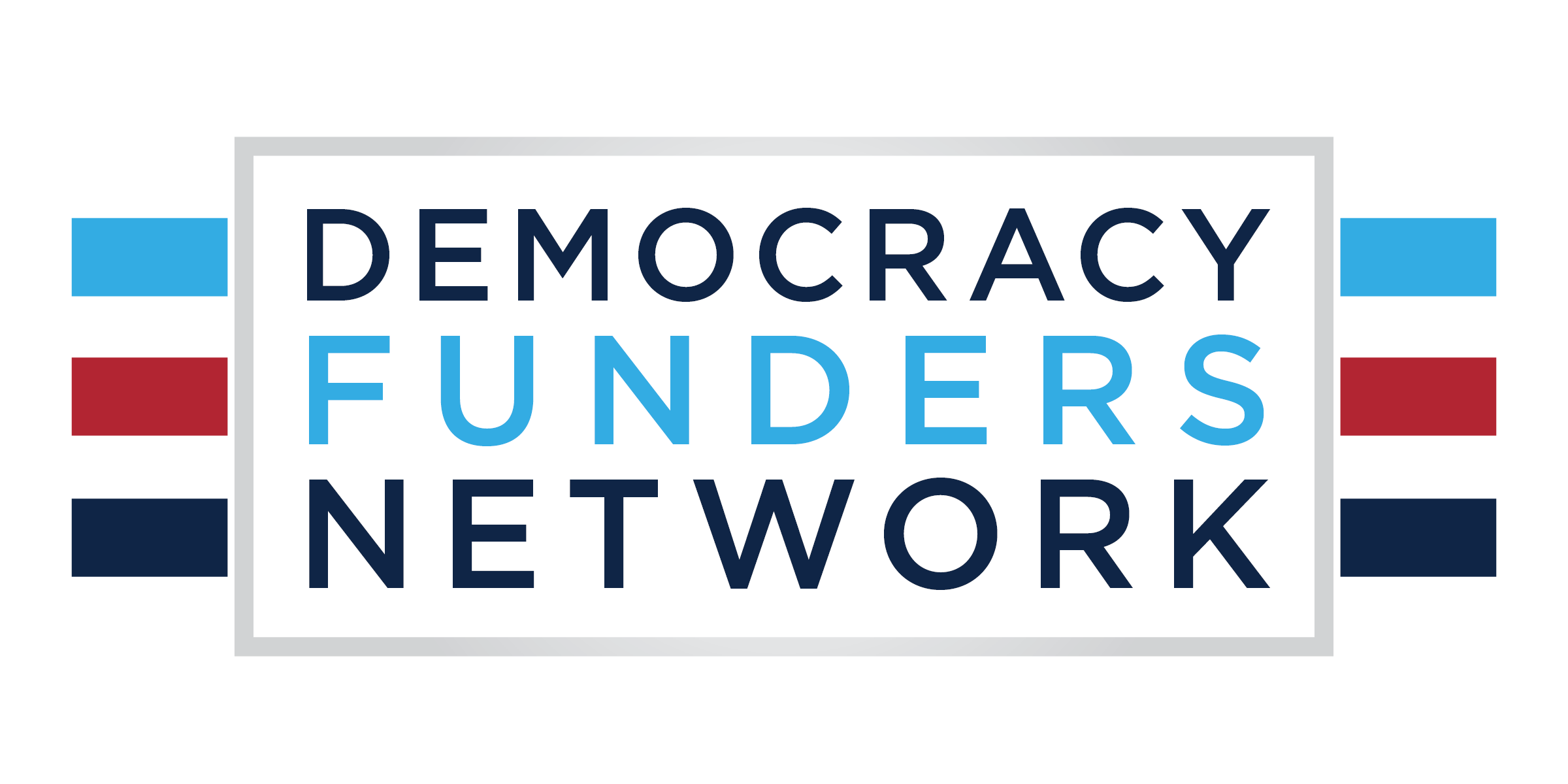Mission
Our mission is to ensure that the United States is a robust liberal democracy a century from now.
Overview
American democracy faces unprecedented challenges, among them: rising authoritarianism, political violence, election denialism, toxic polarization, fractured civic culture, ineffective governing institutions, and a fragmented information environment. Despite these challenges, we believe U.S. democracy is resilient and capable of delivering on the promise of liberty and justice for all. This requires not only defending against immediate threats but also addressing root causes, reforming outdated systems, and building an enduring democracy for future generations.
Our approach
We are a network for funders who want to learn together, build and strengthen relationships, and ultimately identify opportunities for coordination and collaboration. As a learning community, we convene funders and leaders across disparate corners of the field, develop virtual and in-person learning opportunities, and leverage original research to develop tools and resources for the field. But we don't stop at learning. As an action community, we advise donors in our network and move to fill critical funding gaps in the space.
Core principles
The following principles shape DFN’s work:
Democracy is not about our preferred political or policy outcomes.
Many funders conflate democracy with political victories or policy preferences being enacted. When funding aims solely at partisan victories, we're funding politics, not democracy. Creating a truly democratic agenda requires building systems that all Americans can support, regardless of political, religious, racial, or ethnic backgrounds.
Democracy is more than voting.
While voting is fundamental, democracy relies on a broader ecosystem of norms and institutions: rule of law, separation of powers, independent judiciary, and free press. These foundational elements deserve greater philanthropic attention. A comprehensive democracy agenda must address this full spectrum.
There is no silver bullet to save democracy.
Democracy's challenges have multiple causes requiring diverse interventions: structural reform, voting rights expansion, social cohesion building, local journalism support, norm protection, and civic education advancement. Helping funders place their specific interests within this broader landscape enhances overall effectiveness.
Our work
Conducting Research and Generating Knowledge
Regular online programs on key democracy topics
U.S. Democracy Hub data platform in partnership with Impala
Development of tools, resources, and reports for donors
Civic Safety Working Group for funders
Network Weaving
Member Directory to promote connection and collaboration
Annual Democracy Funders Strategy Summit
Regional Democracy Over Dinner series
Field-Building
Strengthening underinvested areas of democracy work
Acting as venture capacity to incubate critical projects
Supporting new funds and collaborative initiatives
Leveraging Strategic Funding
Philanthropic advising for members
Development of donor strategy tools
Field leadership through convenings and coordination














